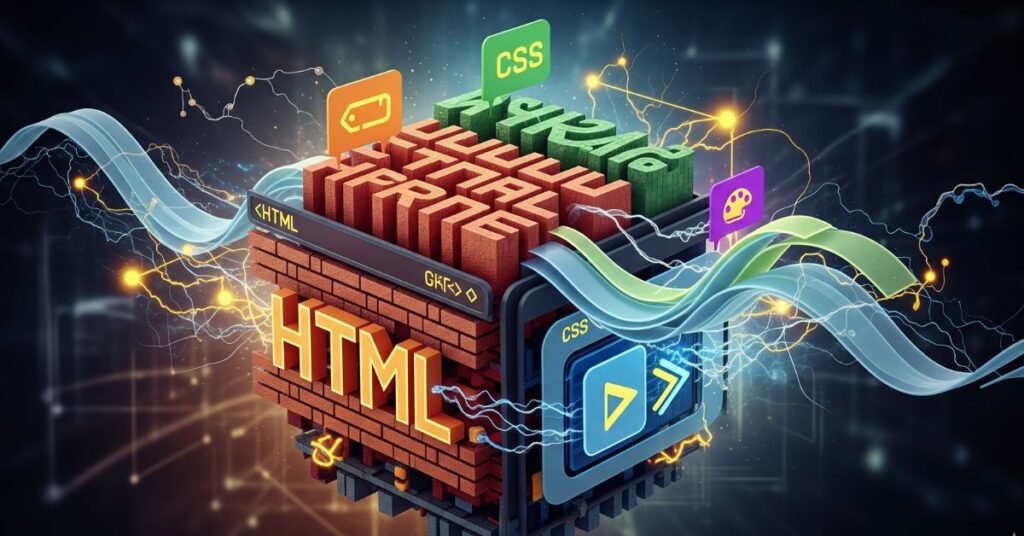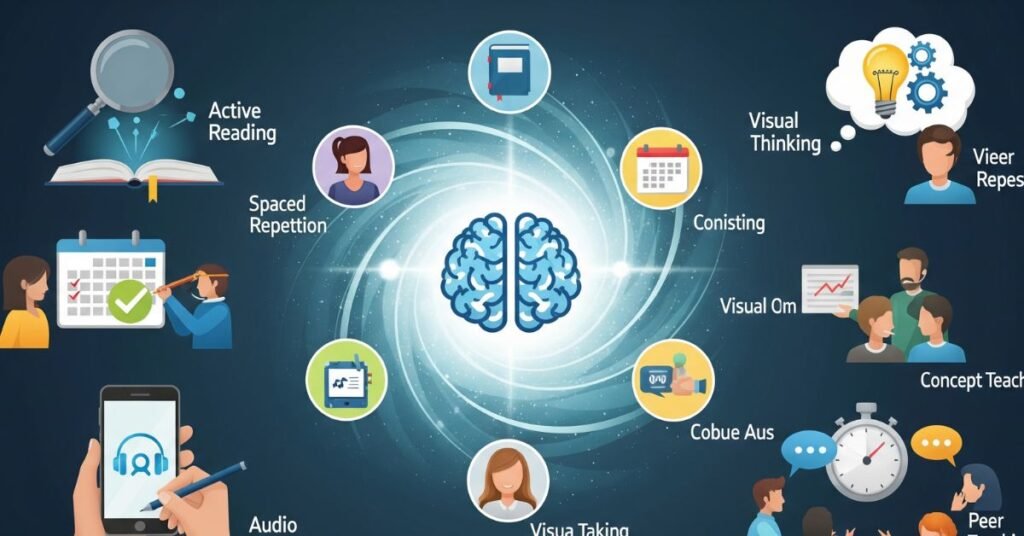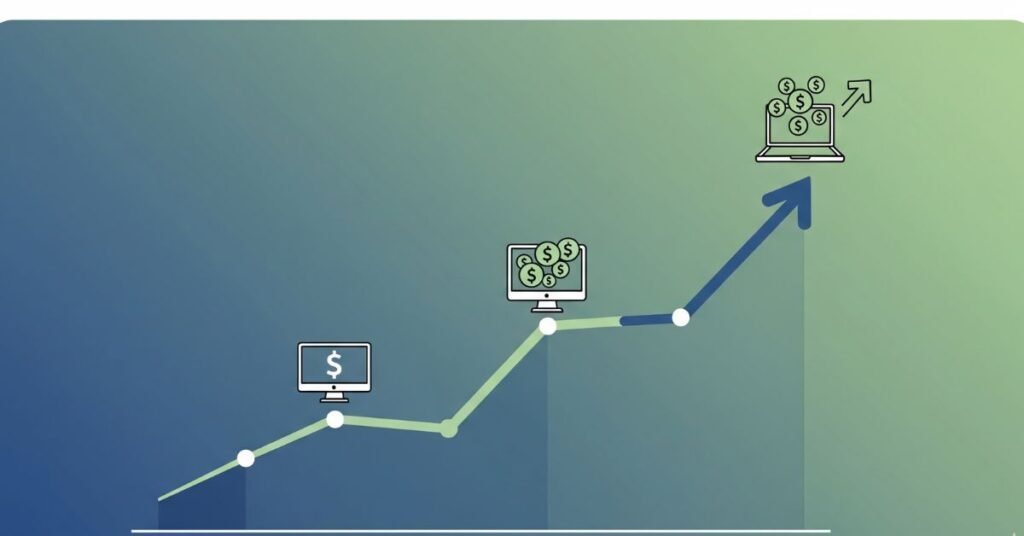So, how long does it really take to learn web development? That is a question most people ask themselves before jumping into coding. Truthfully, it differs for an individual because how quickly you learn is tied into what you’re coming from, what you want to accomplish, and how much you’re able to dedicate daily.
Web development is an awesome skill that blends creativity with rationality. It goes anywhere from assembling basic websites to developing intricate apps. Here in this piece, we are going to examine how long it takes on a general level, what affects how quickly you learn, and some advice on how you can expedite in the proper direction.
Understanding Web Development Basics

Web development is made up of two major areas: front-end and back-end. The front-end is what you see on a website, such as the design, layout, and style. It uses HTML, CSS, and JavaScript. The back-end deals with the hidden side of websites like servers, databases, and frameworks. Together they form what we call full-stack development.
Before you think about time, you need to understand that learning web development starts with strong basics. Many beginners rush into frameworks but forget the foundation. A good base in HTML, CSS, and core JavaScript can save you months of struggle later. Once you have this foundation, you can add advanced tools and libraries more easily.
You will like this: How Web Design Impacts Content Marketing
Key Factors That Influence Learning Speed

The first factor is your background. If you already know programming, you will learn faster. But if you’re new, you’ll need more time to get comfortable with logic and syntax. The second factor is the learning method you choose. Some prefer being self-taught, some attend bootcamps, and others take university degrees. Each method has a different speed.
Time invested daily is also important. Someone practicing three hours every day will progress much faster than a person who studies only on weekends. Motivation and consistency play a big role too. A learner who stays consistent for months will do better than one who studies hard for a week and then takes long breaks.
How Long Does It Really Take?

The time it takes depends on your starting point and learning style. If you are a beginner with no coding experience, it usually takes about 12 to 18 months to reach a job-ready level. If you already know another programming language, you may be ready in 6 to 12 months.
Different paths also have different timelines. A coding bootcamp can prepare you in 3 to 6 months, while university programs may take 3 to 4 years. A self-taught learner might take anywhere between 6 months to 2 years, depending on consistency and resources.
| Learning Path | Time to Learn | Cost | Flexibility |
| Self-taught | 6-24 months | Low or free | High |
| Coding Bootcamp | 3-6 months | Expensive | Medium |
| University Degree | 3-4 years | Very high | Low |
Comparing Learning Paths

A self-taught path is the most flexible. You can use free resources, YouTube, and platforms like freeCodeCamp. But the risk is that you might miss key skills because there’s no guided structure. A bootcamp is faster but costs thousands of dollars. It pushes you hard with projects and group work, and many learners find jobs quickly after graduating.
A university degree gives deep knowledge, theory, and credibility, but it’s slow and costly. Some people prefer a hybrid path, mixing online courses with projects and mentorship. This balanced approach works well for learners who need structure but can’t afford bootcamps.
Read more: How to Develop a Web Portal
Real Stories and Case Studies

One real story is of Sarah, who started with no coding skills. She learned online for about 10 months, building small projects. By the end of one year, she landed a junior developer role. Another story is of James, who joined a coding bootcamp. In just 5 months, he was job-ready and soon hired by a startup.
University graduates usually take longer. For example, Alex studied computer science for four years. He had strong technical knowledge but lacked modern tools. After graduation, he still needed 6 months of online learning to match industry needs. These stories show that the timeline is not fixed and depends heavily on the path you choose.
| Case Study | Learning Path | Time Taken | Outcome |
| Sarah | Self-taught | 12 months | Junior dev role |
| James | Bootcamp | 5 months | Startup job |
| Alex | University | 4.5 years | Needed extra training |
Common Challenges That Slow Learners Down

One of the biggest challenges is JavaScript. Many learners get stuck because it requires logical thinking and practice. Another problem is lack of real projects. If you only study theory, you’ll feel lost when building websites.
Switching between too many resources is another mistake. Beginners often start one course, then switch to another. This creates confusion and slows progress. Burnout is also common. Some learners push too hard in the first weeks and then quit. Staying consistent is better than rushing.
The Reality of Continuous Learning

One truth every developer must accept is that learning never ends. Even after you land your first job, you’ll need to learn new frameworks and tools. Technology changes fast. What’s popular today may be outdated tomorrow.
For example, years ago, jQuery was everywhere. Today, developers prefer React, Vue, or Angular. Tomorrow, there may be a new framework. The key is not to master everything but to master learning itself. Once you become good at adapting, you’ll never feel left behind.
Mindset Matters More Than Speed

Many learners quit because they compare themselves with others. They see someone who learned web development in 6 months and feel discouraged. But your journey is unique. Some learn fast because they study full-time, while others take longer because they work or study part-time.
The right mindset is to see progress, not perfection. If you can look back after six months and see that you can build projects you couldn’t before, you’re already winning. Speed matters less than consistency. As the saying goes, “Slow and steady wins the race.”
Practical Tips to Learn Faster

Start by learning the basics well. HTML, CSS, and JavaScript are non-negotiable. Once you’re confident, build small projects like a to-do list or personal portfolio. Projects give real experience and help you remember concepts better.
Create a study schedule and stick to it. Even one hour a day is better than long breaks. Use GitHub to upload your code. This creates a portfolio that employers can see. Join online communities like Reddit or Stack Overflow. Talking with other learners helps you stay motivated and find solutions quickly.
| Tip | Why It Works |
| Build projects early | Reinforces knowledge through practice |
| Stay consistent | Builds long-term progress |
| Use GitHub portfolio | Shows skills to employers |
| Join communities | Helps solve problems faster |
Career Outcomes After Learning Web Development

After you learn web development, what comes next? Many learners aim for a junior developer job. The average time from beginner to first job is 9 to 18 months, depending on your path. Bootcamp graduates often enter the job market sooner because they’re trained for employment.
But jobs are not the only outcome. Some learners use web development to freelance, build their own websites, or start businesses. Others use it as a stepping stone to careers in UX design, product management, or software engineering. The possibilities are wide once you have the skill.
Salary Expectations for Web Developers

Many learners are curious about pay. Entry-level web developers in the United States earn between $50,000 and $70,000 per year. With experience, salaries rise above $100,000. Freelancers charge anywhere from $20 to $100 per hour, depending on skill and project type.
This shows that web development is not just a creative skill but also a financially rewarding one. The time you invest in learning pays back with strong career opportunities.
FAQ’’S
Can I learn web development in 3 months?
Yes, but only at a beginner level. In 3 months, you can learn the basics of HTML, CSS, and some JavaScript. To be job-ready, you need more time and real projects.
Do I need a degree to get a job in web development?
No. Many developers are self-taught or bootcamp graduates. Companies focus more on skills and projects than degrees.
Is web development harder to learn than other fields?
It depends. Web development has a lot of tools, but many find it easier than advanced programming fields like machine learning. With practice, it becomes manageable.
How many hours per day should I study?
If you can dedicate 2 to 3 hours daily, you can progress quickly. Even one hour a day is effective if you stay consistent.
What’s the difference between job-ready and mastery?
Job-ready means you know enough to work as a junior developer. Mastery means deep understanding of frameworks, scalability, and advanced problem-solving, which may take years.
Conclusion
So, how long does it take to learn web development? The truth is that there is no single answer. A complete beginner may need 12 to 18 months, while others may be job-ready in 6 months with focused learning. The key is not speed but consistency. Small steps daily lead to long-term success. Stay motivated, build projects, and track your progress. With patience and practice, you’ll be ready for a career in web development sooner than you think.



